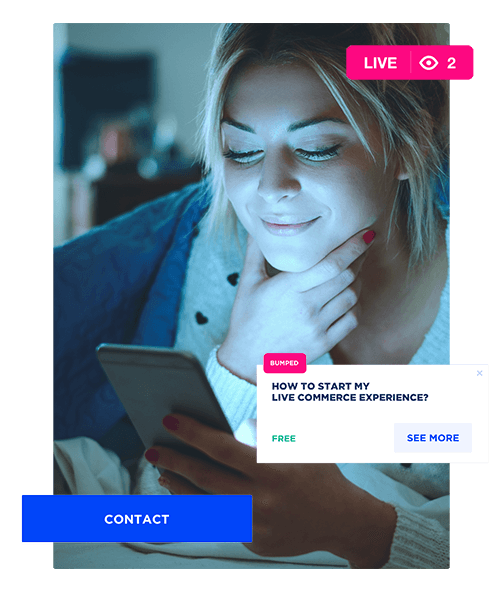
Today, more people than ever are using online platforms to host events. The current situation forces many artists to keep their fans engaged through different streaming platforms, right from their own houses. As expected, this change from offline to online is quite different in terms of generating revenue for both event organizers and artists. Therefore, in order to support everyone who puts on live events as part of their daily lives, it is extremely important to find efficient methods to earn actual income from virtual events. In this article, we will go over different monetization strategies for your online events.
Monetize through Sponsorship
Sponsors are looking for engaging ways to get exposure. In a virtual environment, there are several ways to connect participants with a brand in a fun and interactive manner, before and after your event.
- Branding Opportunities during your Live Stream
Enable your sponsors to bid for a designated logo space on your live stream. Based on the available sessions, you can offer them to have a logo displayed during a keynote, breakout or even in networking spaces. Identify those sessions that receive more publicity and aim to target higher tier sponsors to be part of it. Make sure to find a platform that is equipped with this feature.
- Sponsored Virtual Event Bags
Yes, virtual event bags seem to be a thing now! You can give your sponsors the option of choosing what goes inside your virtual event bag. Ranging from coupons or vouchers to a free trial or an online course, it can basically include anything that can be claimed online. Afterwards, the bag is shared directly with your attendees in the form of a newsletter, via email, social media or through the event app.
Ticketing and paid access to Streams
Revenue coming from ticket sales plays an important role for both online and offline events. However, since the attendee experience can be quite different in a virtual environment, participants might get reluctant when it comes to paid events. For this reason, organizers need to add sufficient value (content, speakers, artists, interactions and sponsors) to convince fans that paying for their virtual event is totally worth it. It can be easy to make them buy tickets for a first edition. However, the quality of the presented content and the overall success can only be measured after hosting at least two online events and after experiencing a positive retention rate.
Selling products in Virtual Events
Traditionally, virtual events that promote the launch of a new product invite attendees to purchase those products in a physical location, after the event. While this is a good sales strategy, because your clients can test and see the real product in an actual location, allowing them to order straight from your live stream can prove to be efficient as well. How is this possible?
Based on the purpose of your virtual event, you can host a dedicated session during your live stream and create an online market for your participants. Let’s assume that online viewers want to buy a product in the middle of a demo. Don’t make them wait until the event is over. Instead, find a solution that provides shopping cart functionalities so that your viewers can drag items into the cart at any point in the presentation.
What if you want to include some items in the ticket price? As previously mentioned, it tends to be a bit harder to convince people to purchase tickets for virtual events. However, if you play it right and you provide great value in return, selling tickets for online events should be a joke, especially if freebies are included. With Oveit, organizers can include products in the ticket price by using the ‘Perks, benefits and addons’ feature. Why is this feature useful for virtual events? Well, it is a great way to keep track of claimed items. Maybe you sell three ticket categories and only those that purchase a ‘Gold’ category are entitled to claim those freebies. You want to avoid scenarios where you need to manually search for individual attendees and find out what they are entitled to claim.




